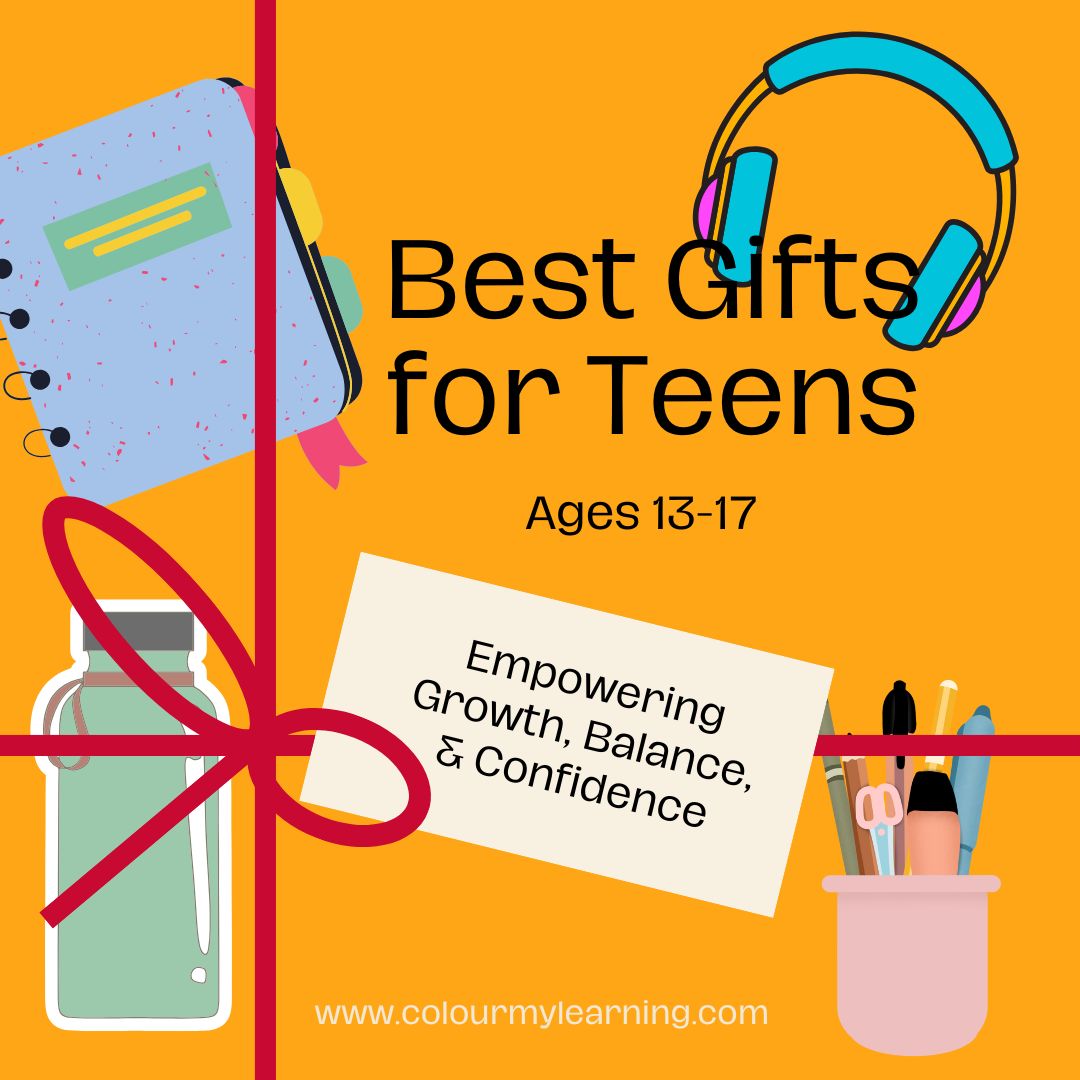Mental Health Challenges – Top 10 Coping Strategies for Teens
Teen years can be tumultuous, with a whirlwind of emotions, changes, and challenges. Given the challenges of the past few years, with Covid lockdowns and the growing discontent around the world, it is no surprise that teenagers find their mental health being challenged. To add to those issues, their deep-seated concerns about climate change, social justice and equality weigh heavily on them. Considering all these factors, it is becomes easy to see why teens may find themselves grappling with mental health issues.
Navigating these challenges requires resilience and a toolbox of coping strategies. In this post we discuss some practical ways for teens to manage and hopefully improve their mental well-being. These coping strategies range from things teens can do to help improve their own awareness of their mental health, including specific steps to identify and express their challenges to identifying a trusted adult who can advise, help, or provide support.
Related Articles
9 Most Common Mental Health Issues Among Teens
How to Talk About Mental Health – Tips for Parents and Teens
8 Traits to Develop for Better Mental Health
List of Mental Health and Well-being Support in the UK
1. Self-expression is essential
Finding space and time to express what you are thinking and feeling is an invaluable outlet both to ‘let off steam’ and to sub-consciously off-load your feelings, thoughts and worries. Any form of down time filled with creative activity from journaling, to doodling and drawing or making music serves to refocus your attention, uplift your mood and generally ser
Journaling: Pouring out feelings onto paper can be incredibly therapeutic. It is a safe space to confront and process emotions without judgment. Additionally, looking back at past entries can provide valuable insights into one’s emotional patterns.

Art: Whether it is drawing, painting, sculpting, or any other form, art allows for a tangible expression of intangible emotions. It can be both a distraction and an outlet for reflection.
Similarly any other form of creative outlet or any activity you enjoy will allow you to refocus your attention and switch off from worrying. Creative activities such as making music, writing poetry all provide a great way to express feelings, thoughts and desires. Similarly, hobbies or activities that brings you joy, whether it is reading, cooking, playing a musical instrument, participating in a sport or even gardening are all valuable ways of spending time and developing a calmer, more peaceful mindset.
2. Talk to friends and family
As a teen, it may often seem as if your parents don’t understand you and that your friends are so much savvier or cooler in how they handle things. The reality is your parents are wiser through lived experience and sharing your concerns and worries with them means that they can begin to try to understand what you are going through. If you feel that it is very difficult to open up to your parent or parents, look for a trusted grown-up, a counsellor or teacher in school, an older friend with whom you can share your concerns and worries.
If you’re not sure about how to start a conversation, we hope that this post might help you: How to Talk About Mental Health – Tips for Parents and Teens
Similarly, in talking through things honestly and openly with your closest friends, you might be surprised to find that they too have similar concerns and might be able to share how they have faced or overcome the same issues.
In the end, talking about concerns and worries that trouble you, allows you share with trusted friends or family members. Bottling up feelings usually aggravate your own sense of well- being. Especially if it is something that is consuming your thoughts and disturbing your sleep. Sometimes, just verbalizing what you’re feeling can offer relief. It will feel that there is someone else in your corner and on your side.
Join Support Groups: Many schools and communities offer groups where teens can discuss their experiences and feelings. Being in a group can remind you that you’re not alone in your struggles.
3. Limit digital/screen time
While technology connects us across space, time and often across great distances, excessive screen time, especially on social media, can exacerbate feelings of isolation, comparison, and inadequacy. It is important to remember that each post or each portrayal you observe on the screen is only a single split-second snapshot of a person’s life. While it may give the appearance of ‘perfection’ and ‘all is well’ the reality behind closed doors and away from cameras are very likely a very different.
Digital detox: Despite your mobile phone or other devices feeling like an extension of yourself and your persona, make sure that you allocate specific times during the day to unplug. This means that you can either turn your device off, or if that is too much of a leap, perhaps place it in a drawer for a specific amount of time. Try to get at least a little tech-free time every day. You could fill that time with a walk or an outdoor activity, some reading, even some crafting or gardening.
Going screen-free especially before bedtime has been confirmed1, 2 to be greatly beneficial, allowing both your brain and your body to calm down, have better more restful sleep.
Mindful consumption: It is also very important to consider what you are filling your screen and therefore your mind with. It is essential to curate your digital space. Make sure to follow social media accounts that uplift and inspire you. Take breaks or simply unfollow accounts and personalities that contribute to making you feel negative.
4. Take part in physical activity
Physical activity and exercise is well-known to contribute to physical and mental well-being. Make sure you are able to spend a little time every day outdoors whether it’s just a simple walk around the block or in a more energetic activity or game like tennis or netball. All physical activities, even simple ones like jogging, dancing, or walking stimulates the body to release endorphins which are the body’s natural mood boosters.
You will find, hopefully, that once you get moving, your mind will naturally turn itself to more uplifting thoughts and you will be able to focus on the activity at hand and over time you will learn to control the thoughts and inner voice.

5. Mindfulness and meditation
In much the same way, focusing on the present moment can also help ground you when your mind starts to spiral. While this takes more practise and certainly more focus, learning to practise mindfulness and learning to meditate, can help bring calm and serenity to your mental well-being.
Mindfulness
The essence of mindfulness if the practise of being wholly present in this present moment. This means that you pay full and focussed attention to whatever you are doing at that moment in time. For example, if you are washing dishes, then your attention is fully focussed on simply doing the dishes. You do not think about what you’ll do after, or whether your homework is complete, or whether it will rain tomorrow. The ultimate practise of mindfulness is to simply be present, at every moment.
To learn more about mindfulness, check out this article: How to Practise Mindfulness
Meditation
While mindfulness is a form of meditation, the practise of meditation itself, requires you to sit or lie down in a comfortable position and essentially observe your thoughts, or focus on your breath. The very first time anyone tries to meditate, it is invariably a very difficult task. If you have never tried to ‘quiet’ your mind before, you will find your mind racing with thoughts almost constantly. And if you try even harder to push these thoughts away, the quicker and stronger they arrive.
Interestingly, the moment you accept thoughts as they arrive and simply return your focus to your breath or to the visual or to the mantra (whichever form of meditation you are trying to practise), things start to calm down. Most important of all, is to be gentle with yourself. As with anything, the practise of meditation gets better with practice.
Apps like Headspace or Calm meditate offer guided sessions tailored for beginners. There are also numerous Meditation for Beginners videos on Youtube

6. Develop a routine
Predictability and routine, simply knowing what activity comes next can provide comfort and security. Having a structured day can reduce feelings of uncertainty, chaos or overwhelm. If this is something that will help you, try to create a fixed timetable for each day. Take in to account your natural sleep cycles, your time in school or in classes, remember to schedule in time for breaks and down time too.
It is important to note that while having a regular routine is helpful, try and give yourself some leeway to be adventurous and spontaneous occasionally too. And if you do manage to try something outside of your typical routine, give yourself a pat on the back and recognise it as an achievement.
7. Seek professional help
It will often feel as if talking about your mental health, or personal challenges is something that no one else wants to hear. Yet it is precisely by talking about it and reaching out that you can find solutions. There is definitely no shame in reaching out for help.
In the beginning you might want to reach out to trusted adults who you feel that you can confide in. If you feel that your problems are verging on serious and even if they are not and you just need to get another perspective it is always valuable to reach out.
School counsellors, therapists, or helplines can provide professional guidance tailored to individual needs. If you are in the UK, here is a list of mental health and well-being providers you can contact.
9. Set boundaries
One of the most important things a young person can learn is to set boundaries. In doing so, it helps you recognise how much and how far you are willing to take on. When things get too much, it is important to learn to say “no” when you feel overwhelmed. It is important that you learn to prioritize your physical and mental well-being and know when to take breaks if and when needed.
As a young person, it is easy to get caught up in trying to achieve and accomplish as much as you can, often at the expense of your own mental health and well-being. You must learn to recognise your own manifestations of stress (acne, stomach aches, tension in neck and shoulders), fear and frustrations.
No one will ever think any less of you if you are honest and open and simply say that you need some time off or explain that you need to have a break.
10. Educate yourself
The more you understand about mental health – what good mental health looks like; learn to recognise symptoms and manifestations of challenges and issues of mental health, the better equipped you’ll be to address your challenges.
We have already written a number of posts dedicated to this topic. It is important to us that young people learn to recognise when they need help and are brave and open enough to reach out for help and support.
Books, online resources, or workshops can offer also invaluable insights.
In conclusion

References
1. Hale L, Kirschen GW, LeBourgeois MK, Gradisar M, Garrison MM, Montgomery-Downs H, Kirschen H, McHale SM, Chang AM, Buxton OM. Youth Screen Media Habits and Sleep: Sleep-Friendly Screen Behavior Recommendations for Clinicians, Educators, and Parents. Child Adolesc Psychiatr Clin N Am. 2018 Apr;27(2):229-245. doi: 10.1016/j.chc.2017.11.014. PMID: 29502749; PMCID: PMC5839336.
2. Hysing M, Pallesen S, Stormark KM, Jakobsen R, Lundervold AJ, Sivertsen B. Sleep and use of electronic devices in adolescence: results from a large population-based study. BMJ Open. 2015 Feb 2;5(1):e006748. doi: 10.1136/bmjopen-2014-006748. PMID: 25643702; PMCID: PMC4316480.
















